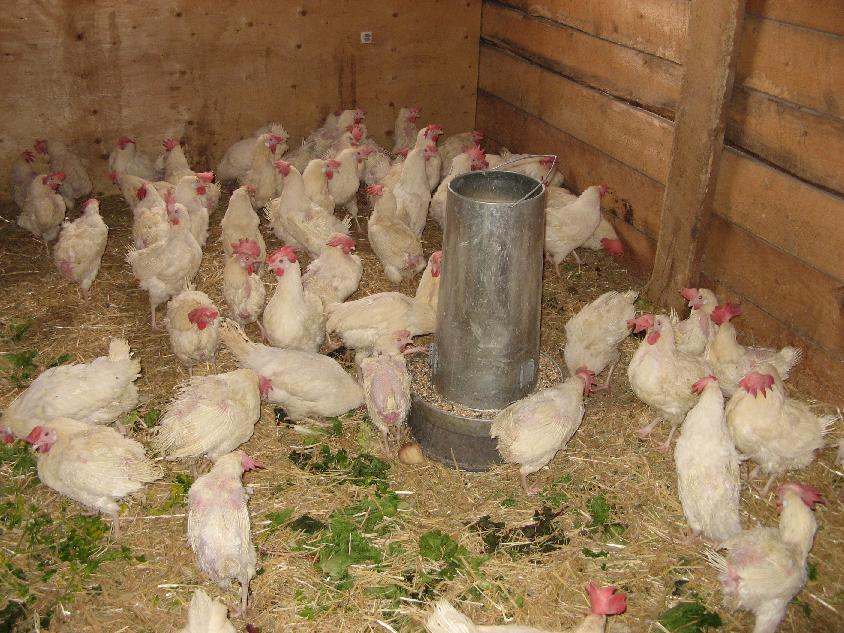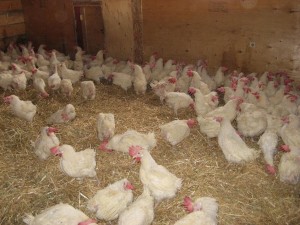Chickens Rescued from Wood Chipper
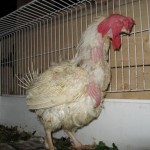
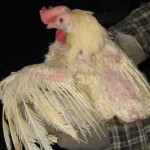
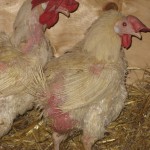
These are photos of forty hens that RASTA rescued from a “small” factory farm in Camrose, Alberta. They are one-year-old egg laying hens that were scheduled to be “disposed of” in a wood chipper (alive) after their egg production had decreased by 10%. Unfortunately RASTA had only enough space and money to rescue forty hens, leaving 4960 birds behind. The remaining birds were killed in a wood chipper.
The majority of store bought eggs come from factory farms which consist of battery caged hens in huge warehouse-type structures often housing an average of 17,500 hens. There are currently 26 million battery cage egg laying hens in Canada.
- Battery cages measure 16″ by 18″ (size of an average web page) with as many as seven birds confined to each cage. The hens have no room to stretch their wings or even stand up straight.
- Due to the insane confinement of these birds, their beaks are usually cut off with a hot blade (an incredibly painful procedure) when they are just chicks to minimize the damage of pecking one another.
- After one year, egg production naturally decreases slightly which means a loss of revenue for the industrialized factory farm profiting from the the misery of these animals and so they are often “disposed of” and replaced with younger stock. Sadly, one of the most common ways that farmers dispose of laying hens is to throw them into a wood chipper (alive!). The gruesome remains are then often fed to other animals as a cheap protein ration, or used as compost.
Please do Not Support the Cruelty of these Factory Farms
The best option for hens is not to use eggs at all. Many common and easy egg substitute recipes are available online. Please visit; www.chooseveg.com
These are the same hens that RASTA rescued after a couple of months of TLC at the Sanctuary:
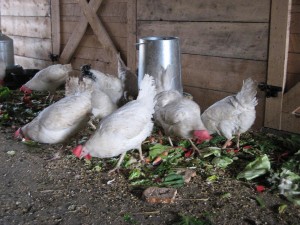
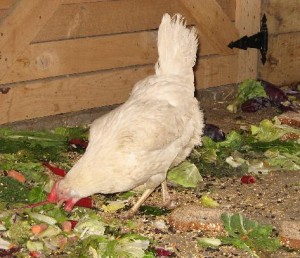
Another 200 Hens Saved from Live Disposal in Wood Chipper
The photos below are of another 200 hens that RASTA volunteers liberated from a couple of factory farms in southern Saskatchewan. Disturbingly, one particular barn housed over 10,000 egg laying hens, which is not unusual by industry standards. Unlike the previous birds RASTA rescued, these hens were only six months old at which point they were slated for disposal due to their slight decrease in egg production. The volunteers had to move very quickly to save as many birds as they could because the farmers were killing the birds on sight by throwing them live into wood chippers!! Limited with space and finances, RASTA was only able to keep fifty hens while the rest were dispersed among carefully screened adoptive homes throughout Canada.
